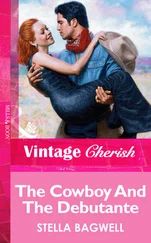Ward - The Cape and the Kaffirs - A Diary of Five Years' Residence in Kaffirland
Здесь есть возможность читать онлайн «Ward - The Cape and the Kaffirs - A Diary of Five Years' Residence in Kaffirland» — ознакомительный отрывок электронной книги совершенно бесплатно, а после прочтения отрывка купить полную версию. В некоторых случаях можно слушать аудио, скачать через торрент в формате fb2 и присутствует краткое содержание. Издательство: Иностранный паблик, Жанр: foreign_prose, История, foreign_edu, foreign_antique, на английском языке. Описание произведения, (предисловие) а так же отзывы посетителей доступны на портале библиотеки ЛибКат.
- Название:The Cape and the Kaffirs: A Diary of Five Years' Residence in Kaffirland
- Автор:
- Издательство:Иностранный паблик
- Жанр:
- Год:неизвестен
- ISBN:нет данных
- Рейтинг книги:4 / 5. Голосов: 1
-
Избранное:Добавить в избранное
- Отзывы:
-
Ваша оценка:
- 80
- 1
- 2
- 3
- 4
- 5
The Cape and the Kaffirs: A Diary of Five Years' Residence in Kaffirland: краткое содержание, описание и аннотация
Предлагаем к чтению аннотацию, описание, краткое содержание или предисловие (зависит от того, что написал сам автор книги «The Cape and the Kaffirs: A Diary of Five Years' Residence in Kaffirland»). Если вы не нашли необходимую информацию о книге — напишите в комментариях, мы постараемся отыскать её.
The Cape and the Kaffirs: A Diary of Five Years' Residence in Kaffirland — читать онлайн ознакомительный отрывок
Ниже представлен текст книги, разбитый по страницам. Система сохранения места последней прочитанной страницы, позволяет с удобством читать онлайн бесплатно книгу «The Cape and the Kaffirs: A Diary of Five Years' Residence in Kaffirland», без необходимости каждый раз заново искать на чём Вы остановились. Поставьте закладку, и сможете в любой момент перейти на страницу, на которой закончили чтение.
Интервал:
Закладка:
I have imagined that if some profitable employment were set on foot among them it would have a beneficial effect; but I understand that wool-combing was tried, which would have added to their cattle flocks of sheep, besides promoting habits of industry; but this failed,—their idleness is incorrigible. The principal articles of our manufacture coveted by them are fire-arms. There was before the late war some ill-devised and worse-executed law for the prevention of the sale of these, but it was of small effect. Even assegais made in England have been sent out here, but the Kaffirs object to our manufacture of iron, as being too malleable, preferring that prepared at their own primitive forges. I have heard it remarked that the bellows they use in forging are proof of their having sprung from a race more skilled in the arts of civilisation than themselves. Two pieces of hide are sown together in the form of a pointed bag; the wide part at top is stretched open by two sticks; in the point at the bottom, also open, is inserted a bullock’s horn, filed at the point, through which passes the air, which is admitted by opening and shutting the bellows at the wide end.
To enter upon a minute description of Kaffir habits, customs, ceremonials, and superstitions, would be to exceed my limits. I prefer confining myself to the results of my personal observations, which, however, from my long residence in Kaffirland, will embrace many points left unnoticed by writers who have merely travelled through the country.
Chapter V.
The Kaffirs—their Superstitions
The Kaffirs have no idea of a future state, and many can hardly be taught to believe that there are countries beyond their own. Some have a crude idea that Europeans, particularly the English, live on the waters in ships. Even to their own chiefs, and people who have been in England, they will give no credence. A Kaffir believes only what he sees. Latterly, they have become more inquisitive, and ask questions, wondering “if the Queen of England is like other human beings!”
They are so exceedingly superstitious that the more cunning members of their community take advantage of a weakness common to all, but possessed in a greater degree by some than by others. The system of “eating-up,” as it is called, arises from the prevalence of superstition, and may be thus described. A man, who, from his knowledge of herbs and practice among the sick, is considered and denominated a doctor, entertains, perhaps, a spite against some individual. He hears that another is sick,—if a chief so much the better for his purpose,—or perhaps he may employ some nefarious means to injure the health of a man by whom he intends to be employed. The chief, then, falls sick, naturally, or by foul means; meanwhile, the “doctor” has not been idle, he has carried to some hiding-place some herbs, skin, or something of this kind, and has buried it in a nook. Soon after comes the summons for him. He goes. The patient is suffering, and the mode of questioning the sick man is singular enough. With a grave face and solemn air, the doctor begins his inquiries,—“Does his head ache?” “No.” “Has he a sore throat?” “No.” “Pain in the shoulders?” “No.” “In the chest?” “No.” “In the arms?” “No.” And so on, till the part affected is touched. Then the pain is acknowledged, and there is a long pause. No one ventures to speak, save the doctor and the patient. At last, the former asks the invalid who has bewitched him? All disease is looked upon as the effect of magic, from their total ignorance of a Providence. The patient replies, he does not know. It is not improbable, indeed, he may be leagued with the doctor; or, if he be a chief, that he may have resolved on possessing himself of some poor dependent’s cattle, and therefore bribes the doctor to assist him in his scheme. All the inhabitants of the kraal are summoned. They come. Perhaps, they expect a feast, unless they are aware of the chief’s illness. The doctor moves through the assembly, examines the countenances of this man and that, retires, deliberates, returns, and at last points out the unfortunate man who has already been devoted to ruin. The victim protests his innocence. It is of no avail. The wise doctor can prove where he has hidden the charm which works the mischief. He goes to the nook where he himself has concealed it. The people follow. Wonderful;—he discovers it—brings it to the chief, who orders the victim to pay so many head of cattle, the tax imposed being always so heavy as to injure the unfortunate creature beyond redemption. Frequently, he is condemned to death, and frightful cruelties are to this day practised on men and women accused of witchcraft, who, with their heads smeared with honey, are bound down on an ant-hill, and at their feet a blazing fire. Unable to move, they lie for days enduring this torture, till they are released or die. In the former case even, they are crippled for life. A case came to my knowledge, in which a rain-maker, a character similar to that of the doctor, but whose business is curing the weather, caused a poor creature to be put to death; and, strange to say, on the following day, though we had not had a drop of rain for nearly four months, and were very short of water, the torrents which fell deluged the country, and filled the tanks and rivers beyond what had been seen for a considerable time.
I confess that, as I have ridden through the kraals, and seen the groups of Fingoes, or Kaffirs, sitting about the fires, surrounded by their children, cooking their corn, chattering and laughing, while at a little distance young boys basked in the sun, playing with pebbles at some game, or, lying on the grass, idle, and happy in their idleness, without a thought beyond the present, any more than the herd that cropped the green herbage round them, I have said to my companions, “How can we expect these happy wretches to be other than savages?” The earth yields them food, and their cattle, milk and clothing. Trees provide them wood for the frame-work of their huts, and their fires, and the clay on which they sit is shaped into utensils for their use. Wise in their own conceit, they must be but too happy and independent to change their condition of their own free will. They have no idea of the sin of a theft, or a lie, being equal to the folly which permits it to be found out.
I shall have occasion by and by to describe a council at which I was present, wherein Umhala, a Kaffir chief, was summoned by the Lieutenant-Governor, to show cause why he had threatened to “eat up” Gasella, another chief, his step-brother. The secret of the threat was said to lie in Gasella’s friendly feeling towards the English, and his consequent determination to prevent the inroads of the Kaffirs upon the colony, for the purpose of abstracting cattle; but I strongly doubt the existence of such a feeling in any Kaffir whatever. The constant thefts of cattle give rise to “Commandos” to recover them, and after a successful one, a military party in charge of cattle, conducting them into Graham’s Town, is not an unamusing sight. How would some aristocratic papas and mammas be horrified at seeing their gentlemanlike sons heading the party, and playing the part of principal herdsman on the redoubtable occasion! Such expeditions require the utmost caution, and are frequently attended with danger; and, though it would be no addition to the soldier’s wreath of glory to be assegaied, or shot, in the execution of such a duty as that of driving cattle, he would be not the less killed “for a’ that,”—dead,—lost to his sorrowing friends and his unsympathising country for ever.
The restless desire for plunder among the Kaffirs speaks much in favour of their Arab origin. So do their tent-shaped huts, their riches consisting in herds of cattle, and their wandering habits. The Kaffirs’ principal instrument of war is the spear, or assegai. Such, a weapon is now in especial use among the Arabs. The poising and hurling this spear constitute a trial of dexterity which they love to exhibit; and there could not be a finer subject for a painter than a tall Kaffir, majestically formed, with one foot firmly planted before him, his head thrown back, his kaross draped pound him, leaving the right arm and foot free and unfettered, in the act of poising an assegai before he sends it flashing through the sunlit air. Their wearing clothes will be an excellent thing for our manufactories, but will help to enervate the savage.
Читать дальшеИнтервал:
Закладка:
Похожие книги на «The Cape and the Kaffirs: A Diary of Five Years' Residence in Kaffirland»
Представляем Вашему вниманию похожие книги на «The Cape and the Kaffirs: A Diary of Five Years' Residence in Kaffirland» списком для выбора. Мы отобрали схожую по названию и смыслу литературу в надежде предоставить читателям больше вариантов отыскать новые, интересные, ещё непрочитанные произведения.
Обсуждение, отзывы о книге «The Cape and the Kaffirs: A Diary of Five Years' Residence in Kaffirland» и просто собственные мнения читателей. Оставьте ваши комментарии, напишите, что Вы думаете о произведении, его смысле или главных героях. Укажите что конкретно понравилось, а что нет, и почему Вы так считаете.












